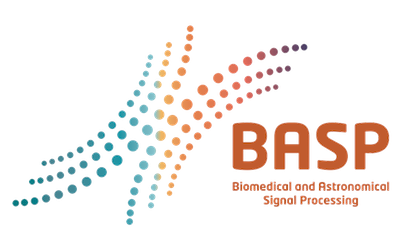Foundation and Multimodal Models in Computational Imaging
Abstract:
Recently, foundation models, which are large scale models pretrained on massive amounts of diverse data in a self-supervised manner, have been quickly replacing the existing CNN based end-to-end and/or supervised-learning approaches due to their superior performance. As a result of large-scale self-supervised pre-training, foundation models have excellent generalization capabilities with intriguing emergent properties. This session targets recent advances in foundation models for computational imaging, such as text+image models, as well as diffusion models for inverse problems, to understand their advantages and opportunities.
Organiser & chair: Jong Chul Ye
Session Schedule
- 8:00 - 8:20
- Session organiser talk: Diffusion Foundation Models for Inverse Problems
- Jong Chul Ye
- 8:20 - 8:40
- Invited talk: Datasets Design for Improved and Reliable Deep Learning-Based Imaging
- Reinhard Heckel
- 8:40 - 9:00
- Invited talk: MediConfusion: Can you trust your AI radiologist? Probing the Reliability of Multimodal Medical Foundation Models
- Mahdi Soltanolkotabi
- 9:00 - 9:20
- Invited talk: Towards Multi-Modal Foundation Models for 3D Medical Imaging
- Akshay Chaudhari
- 9:20 - 9:40
- Invited talk: 3D Computer Vision in the Age of Deep Learning
- Daniel Cremers
- 9:40 - 11:00
- Invited poster: Learning Generative Models from Corrupted Data
- Giannis Daras*
- 9:40 - 11:00
- Invited poster: Iterative Renoising as an Efficient Way to Solve Imaging Inverse Problems with Diffusion
- Philip Schniter
- 9:40 - 11:00
- Contributed poster: AI4EYE: Translation and Fusion of Multimodal Retinal Imaging
- Alin Achim
- 9:40 - 11:00
- Contributed poster: Blind Image Restoration via Fast Diffusion Inversion
- Hamadi Chihaoui*
